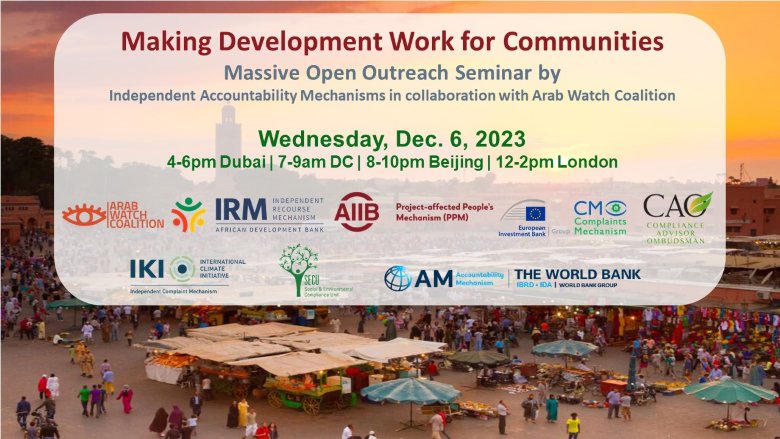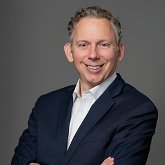On December 6, 2023, the World Bank Accountability Mechanism co-hosted a Massive Open Outreach Seminar, “Making Development Work for Communities”, with six independent accountability mechanisms (IAMs) and the Arab Watch Coalition (AWC), focusing on the Middle East and North Africa (MENA) region. The online event, held in English, French, and Arabic, aimed to boost awareness about IAMs across the region.
Participants were led through sessions on the role of civil society organizations in the accountability ecosystem; how to access the IAMs; how to file complaints and eligibility requirements; dispute resolution and compliance processes; and how the mechanisms address reprisal risks and confidentiality requests. Cases from Yemen and Egypt provided real-world examples of how IAMs can serve communities in the MENA region.
One challenge is that IAMs have received very few complaints from this region. The AWC’s Mariyah Sahnouni explained why: “I don’t think a lot of people know about the existence of IAMs—hence the importance of such outreach seminars—mainly because of language problems because people speak Arabic; because IAMs are not headquartered in the MENA region; but also because of fear. A lot of communities would be afraid, and would not feel secure enough, to file complaints if the project is financed by their government or a big company.”
“Making Development Work for Communities” drew on the expertise and experience of the Independent Redress Mechanism (AfDB), the Project-affected People’s Mechanism (AIIB), the Complaints Mechanism (EIB), the Compliance Advisor Ombudsman (IFC/MIGA), the Independent Complaint Mechanism (IKI), the Social and Environmental Compliance Unit (UNDP), and the Accountability Mechanism (World Bank), as well as the AWC. A recording of the event is available here.





